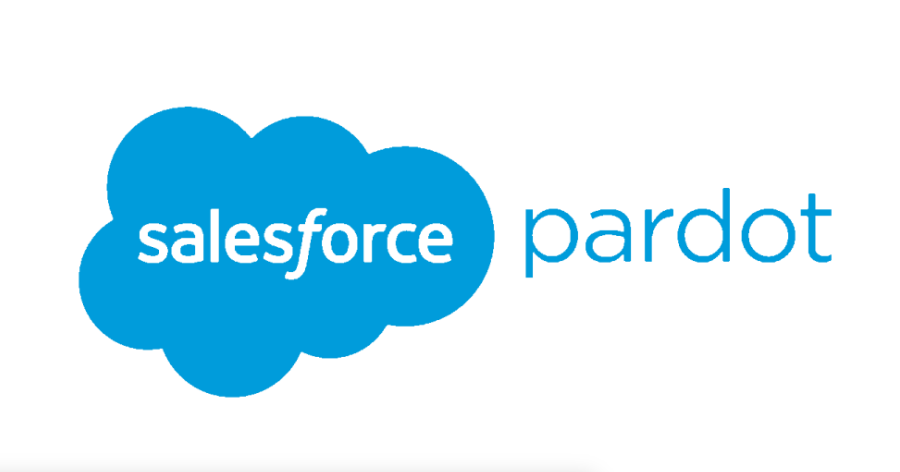Pardot implementation has become the need of the hour for businesses across the globe. Why? Read this post and learn how Salesforce Pardot is helping businesses generate more leads and accelerate sales growth.
The corporate world is dynamically driven by technology. From sales to operations and beyond, there’s a specific technology for specific business processes. In today’s fast-paced and highly competitive business landscape, marketing automation has become a must-have tool for organizations of all sizes. By leveraging the power of technology, businesses can streamline their marketing processes, improve their lead generation, and enhance their overall marketing performance.
One of the most important marketing automation tools is Pardot.

What is Pardot?
Pardot is a marketing automation platform owned by Salesforce that helps businesses to streamline their marketing processes and generate more leads. It gives users complete control over their marketing campaign and gives them in-depth valuable insights.
Before you hire a Salesforce functional consultant, let’s take a look at the ways Salesforce Pardot implementation will prove helpful for you.
- Pardot helps you monitor customer interaction with your marketing assets.
- You can build a customer journey from first contact to final sales with the help of Pardot.
- The marketing team can create fully integrating marketing channels that allow them to rapidly process & foster potential prospects.
- It comes with a robust dashboard through which campaign tracking becomes hassle-free.
Top Functions of Salesforce Pardot
Salesforce Pardot is a marketing automation tool that can help businesses streamline their marketing efforts and improve customer engagement. It provides a range of features that can be customized and configured to meet the specific needs of any organization. Here are the top functions of Salesforce Pardot that will help businesses achieve their marketing goals.
Lead Management
One of the primary functions of Salesforce Pardot is lead management. It provides businesses with tools to capture, track, and manage leads effectively. This includes lead scoring, lead nurturing, and lead routing.
With lead scoring, businesses can assign scores to leads based on their behavior and engagement with the company. This can help identify the most promising leads that are more likely to convert into customers.
Lead nurturing enables businesses to send personalized and targeted messages to leads, keeping them engaged and informed. Lead routing ensures that leads are automatically assigned to the right sales representatives, based on criteria such as geography, industry, or size of the company.
Email Marketing
Email marketing is an essential part of any marketing strategy. Salesforce Pardot provides businesses with tools to create and send email campaigns that are tailored to specific audiences.
With Pardot’s email builder, businesses can create visually appealing emails that are optimized for all devices. Pardot also includes automation features that allow businesses to send triggered emails based on specific actions, such as signing up for a newsletter or making a purchase.
Forms and Landing Pages
Forms and landing pages are critical components of any lead-generation strategy. With Pardot implementation, businesses can easily create custom forms and landing pages that are optimized for conversions.
Pardot’s form builder allows businesses to create forms with custom fields, progressive profiling, and conditional logic. Landing pages can be created with a drag-and-drop interface, and businesses can choose from a range of templates or create their own. Pardot also provides A/B testing functionality, allowing businesses to test different variations of forms and landing pages to determine the best-performing option.
Social Media Marketing
Social media is an essential channel for engaging with customers and promoting brand awareness. Hire a Pardot implementation company, and you will effectively handle your ads on social media channels such as Facebook, Instagram, LinkedIn, Twitter, etc.
Pardot includes social media marketing features that allow businesses to manage social media campaigns from within the platform. This includes scheduling and publishing social media posts, monitoring social media activity, and analyzing social media performance.
Analytics and Reporting
Analytics and reporting are critical for understanding the effectiveness of marketing campaigns and making data-driven decisions. Pardot includes robust analytics and reporting functionality, providing businesses with insights into campaign performance, lead behavior, and ROI. Businesses can create custom reports and dashboards to track specific metrics, such as email open rates, click-through rates, and conversion rates.
Loyalty Building
Pardot helps you work closely around customers’ needs and provide you with the way you can fulfill them. It ultimately leads to building strong customer loyalty. You can leverage Engagement studio, a prominent Salesforce tool that allows users to learn about the customer and their engagement journey with the brand such as last interaction, interaction frequency, time a customer left, and many more.
You can learn the dynamics of customer engagement, create a dedicated customer journey, and serve them in a personalized manner.
What are the top Advantages of Salesforce Pardot?
Streamlined Marketing Processes
Salesforce Pardot implementation helps businesses automate their marketing processes, saving time and resources. With Pardot, businesses can automate lead capture, lead nurturing, and lead scoring, ensuring that leads are engaged and ready for sales teams to follow up with. This streamlines marketing processes, enabling teams to focus on higher-value tasks and ultimately increasing efficiency and productivity.
Better Lead Management
Pardot’s lead management capabilities allow businesses to track leads more effectively, making it easier to identify the most promising leads and take action. Pardot’s lead scoring system allows businesses to assign scores to leads based on their behavior and engagement, ensuring that sales teams focus on the leads that are most likely to convert. Additionally, Pardot’s lead nurturing features enable businesses to send targeted and personalized messages to leads, keeping them engaged and moving them through the sales funnel.
Improved Sales and Marketing Alignment:
Salesforce Pardot can help improve alignment between sales and marketing teams. By providing real-time data on leads and their behavior, Pardot enables sales teams to have more informed conversations with leads. Pardot also integrates with Salesforce CRM, ensuring that all leads are captured and tracked in a single location. This can help reduce friction between sales and marketing teams and ultimately lead to more efficient and effective sales processes.
Enhanced Reporting and Analytics
Salesforce Pardot provides businesses with a wealth of data on lead behavior and campaign performance. This data can be used to create custom reports and dashboards, enabling businesses to track key metrics and make data-driven decisions. With Pardot’s reporting and analytics capabilities, businesses can easily identify which campaigns are performing well and make adjustments to optimize their marketing efforts.
Personalized Marketing
Personalization is a key to effective marketing, and Pardot’s features allow businesses to create personalized experiences for their leads. With Pardot, businesses can create targeted messages that are tailored to specific audiences, increasing the likelihood of conversion. Pardot’s automation features also enable businesses to send triggered messages based on specific actions, such as signing up for a newsletter or attending a webinar.
Things to Consider at the time of Salesforce Pardot Implementation
Implementing Salesforce Pardot can help businesses streamline their marketing processes, improve lead management, and drive growth. Here are some of the best ways for businesses to implement Salesforce Pardot:
Set Clear Goals
Before implementing Pardot, it’s important for businesses to define their goals and objectives. This will help guide the implementation process and ensure that Pardot is configured in a way that aligns with the business’s needs. Businesses should also define key performance indicators (KPIs) that will be used to measure success.
Conduct a Needs Assessment
It’s important for businesses to conduct a needs assessment like reviewing current marketing processes and identifying areas where automation and optimization can be introduced. It will help users identify the features and functionalities of Pardot that will be most beneficial.
Configure Pardot
Once goals and needs have been identified, businesses can begin configuring Pardot. Pardot configuration includes the following steps – setting up campaigns, forms, landing pages, and email templates. Also, configure lead scoring and nurturing processes to ensure that Pardot configuration aligns with the business’s goals and objectives.
Integrate with Salesforce CRM
Pardot integrates seamlessly with Salesforce CRM, providing a single source of truth for lead and customer data. It’s important to configure the integration between Pardot and Salesforce CRM to ensure that data is syncing correctly and that leads are being routed to the appropriate sales team members.
Train Users
Effective implementation of Pardot requires that users are trained on the platform and understand how to use it to achieve their goals. This can involve providing training sessions, creating user guides, and conducting ongoing education to ensure that users are up to date on new features and functionalities.
Monitor and Optimize
Finally, it’s important for businesses to continually monitor and optimize their use of Pardot. This can involve reviewing campaign performance, adjusting lead scoring and nurturing processes, and making adjustments to email templates and landing pages. By continually monitoring and optimizing their use of Pardot, businesses can ensure that they are achieving their goals and driving growth.
Conclusion
Implementing Salesforce Pardot can help businesses improve their marketing processes, better manage leads, improve sales and marketing alignment, and create more personalized marketing experiences.
By taking advantage of Pardot’s reporting and analytics features, businesses can also make data-driven decisions that can help them optimize their marketing efforts and drive growth.
Hire an experienced Salesforce Pardot implementation partner and engage more buyers and build robust B2B relations.








